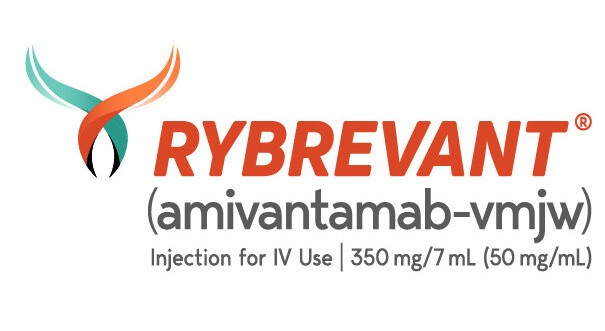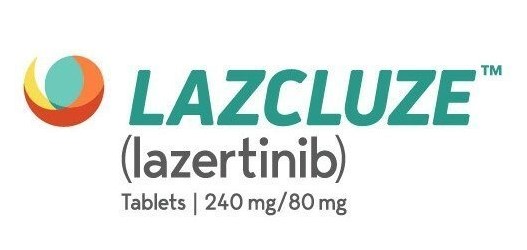
Johnson and Johnson has announced positive topline results from the Phase 3 MARIPOSA study
The MARIPOSA study’s findings position RYBREVANT plus LAZCLUZE as the first regimen to show a survival benefit over existing treatments in this context, highlighting its potential to extend patient survival significantly beyond current therapies.
Johnson and Johnson has announced positive topline results for the gold standard endpoint in cancer treatment of overall survival (OS) from the Phase 3 MARIPOSA study, evaluating RYBREVANT (amivantamab-vmjw) plus LAZCLUZE (lazertinib) as a first-line therapy for patients with locally advanced or metastatic non-small cell lung cancer (NSCLC) with epidermal growth factor receptor (EGFR) exon 19 deletions (ex19del) or L858R substitution mutations.

“The combination of these two agents previously demonstrated an improvement in progression-free survival, but this does not always capture the impact on the entire treatment course. Evaluation of overall survival can better demonstrate the benefit of a first-line treatment regimen.
Seeing this increase in overall survival in a trial with mature data is powerful and reaffirms that first-line treatment with RYBREVANT and LAZCLUZE can lead to better patient outcomes.” – said Stephen Liu, M.D., Associate Professor of Medicine at Georgetown University School of Medicine, andDirector of Thoracic Oncology and Head of Developmental Therapeutics at Georgetown’s Lombardi Comprehensive Cancer Center.

The chemotherapy-free combination regimen met the final pre-specified secondary endpoint of OS and demonstrated clinically meaningful and statistically significant improvement in OS versus the current standard of care osimertinib. Improvement in median OS is expected to exceed one year.
Unlike progression-free survival (PFS), which tracks the time a treatment keeps a patient’s cancer from progressing, overall survival helps patients understand the impact therapy could have on the ability to live longer from the start of treatment. Extending life expectancy is the most meaningful indicator of a treatment’s impact.
Results from the final overall survival analysis build upon previously reported data from the interim analysis and positive results from the progression-free survival analysis. MARIPOSA, which enrolled 1,074 patients, is a randomized, Phase 3 study evaluating RYBREVANT in combination with LAZCLUZE versus osimertinib as a first-line treatment of patients with EGFR-mutated NSCLC.
“These new findings reinforce the clinically meaningful impact this chemotherapy-free regimen can have for patients worldwide with non-small cell lung cancer and represent the first overall survival benefit over the current standard of care. With less than 20 percent of patients living beyond five years, an incredible unmet need remains for EGFR-positive lung cancer.
These MARIPOSA results show RYBREVANT plus LAZCLUZE can extend survival beyond the current standard of care, providing patients with more time and hope in their fight against this devastating disease. Extending median overall survival by more than a year would be transformative for these patients.” – said Yusri Elsayed, M.D., M.H.Sc., Ph.D., Global Therapeutic Area Head, Oncology, Johnson & Johnson Innovative Medicine.

The study’s primary endpoint was progression-free survival (using RECIST v1.1 guidelines) as assessed by blinded independent central review (BICR). Secondary endpoints included overall survival, objective response rate (ORR), duration of response (DOR), second progression-free survival (PFS2) and intracranial PFS.
The safety profile of RYBREVANT plus LAZCLUZE was generally consistent with the profiles of the individual treatments. Adverse event rates were consistent in this arm as compared to other RYBREVANT regimens. Venous thromboembolic events were observed with the combination. Subsequent studies showed that administering oral anticoagulant medicines prophylactically during the initial four months of the RYBREVANT and LAZCLUZE regimen significantly reduced the risk of thrombosis.
Due to the impact of these data on patient care, these OS results will be presented at an upcoming major medical meeting and shared with global health authorities. RYBREVANT combined with LAZCLUZE is approved in the United States and Europe for the first-line treatment of patients with EGFR-mutated NSCLC based on the MARIPOSA Phase 3 study.
“Every milestone in clinical trials and every approval of a new drug or regimen brings hope and progress for EGFR-positive patients and their families. These topline data from the MARIPOSA trial offer renewed optimism in the journey to extend life for EGFR-mutated patients, adding another important option for patients and oncologists.” – said Marcia Horn, President of International Cancer Advocacy Network.

About RYBREVANT
RYBREVANT (amivantamab-vmjw), a fully-human bispecific antibody targeting EGFR and MET with immune cell-directing activity, is approved in the U.S., Europe and other markets around the world as monotherapy for the treatment of adult patients with locally advanced or metastatic NSCLC with EGFRexon 20 insertion mutations, as detected by an FDA-approved test, whose disease has progressed on or after platinum-based chemotherapy.
RYBREVANT is approved in the U.S., Europe and other markets around the world in combination with chemotherapy (carboplatin and pemetrexed) for the first-line treatment of adult patients with locally advanced or metastatic NSCLC with EGFR exon 20 insertion mutations, as detected by an FDA-approved test.
RYBREVANT is approved in the U.S. and Europe in combination with LAZCLUZE (lazertinib) for the first-line treatment of adult patients with locally advanced or metastatic NSCLC with EGFR exon 19 deletions or L858R substitution mutations, as detected by an FDA-approved test.
RYBREVANT is approved in the U.S., Europe and other markets around the world in combination with chemotherapy (carboplatin-pemetrexed) for the treatment of adult patients with locally advanced or metastatic NSCLC with EGFR exon 19 deletions or L858R substitution mutations, whose disease has progressed on or after treatment with an EGFR TKI.

The National Comprehensive Cancer Network (NCCN) Clinical Practice Guidelines in Oncology (NCCN Guidelines) for NSCLC prefer next-generation sequencing – based strategies over polymerase chain reaction–based approaches for the detection of EGFRexon 20 insertion variants. The NCCN Guidelines include:
- Amivantamab-vmjw (RYBREVANT) plus lazertinib (LAZCLUZE) as a Category 1 recommendation for first-line therapy in patients with locally advanced or metastatic NSCLC with EGFR exon 19 deletions or exon 21 L858R mutations.
- Amivantamab-vmjw (RYBREVANT) plus chemotherapy as a Category 1 recommendation for patients with locally advanced or metastatic NSCLC with EGFR exon 19 deletions or exon 21 L858R mutations who experienced disease progression after treatment with osimertinib.
- Amivantamab-vmjw (RYBREVANT) plus chemotherapy as a Category 1 recommendation for first-line therapy in treatment-naive patients with newly diagnosed advanced or metastatic EGFR exon 20 insertion mutation-positive advanced NSCLC.
- Amivantamab-vmjw (RYBREVANT) as a Category 2A recommendation for patients that have progressed on or after platinum-based chemotherapy with or without an immunotherapy and have EGFR exon 20 insertion mutation-positive NSCLC.
About LAZCLUZE

In 2018, Janssen Biotech entered into a license and collaboration agreement with Yuhan Corporation for the development of LAZCLUZE (marketed as LACLAZA in Korea). LAZCLUZE is an oral, third-generation, brain-penetrant EGFR TKI that targets both the T790M mutation and activating EGFR mutations while sparing wild-type EGFR.
An analysis of the efficacy and safety of LAZCLUZE from the Phase 3 LASER301 study was published in The Journal of Clinical Oncology in 2023.
Authors: Byoung Chul Cho et al.
Read full Prescribing Information for RYBREVANT.
Read full Prescribing Information for LAZCLUZE.
About Johnson and Johnson
Johnson and Johnson, is a leading global healthcare company with a commitment to improving health and well-being worldwide. With a deep-rooted focus on innovation, the company spans multiple sectors, including pharmaceuticals, medical devices, and consumer health products. Through its divisions, such as Janssen Research and Development and Janssen Biotech, Johnson & Johnson is at the forefront of developing cutting-edge treatments for complex diseases, from cancer and immunological disorders to neurological conditions.
Their work focuses not only on treating illness but on preventing and curing diseases, offering smarter, less invasive, and more personalized healthcare solutions. By leveraging their expertise in both Innovative Medicine and MedTech, they are uniquely positioned to drive breakthrough advancements in healthcare that will shape the future of medicine and profoundly impact global health.
-
ESMO 2024 Congress
September 13-17, 2024
-
ASCO Annual Meeting
May 30 - June 4, 2024
-
Yvonne Award 2024
May 31, 2024
-
OncoThon 2024, Online
Feb. 15, 2024
-
Global Summit on War & Cancer 2023, Online
Dec. 14-16, 2023
